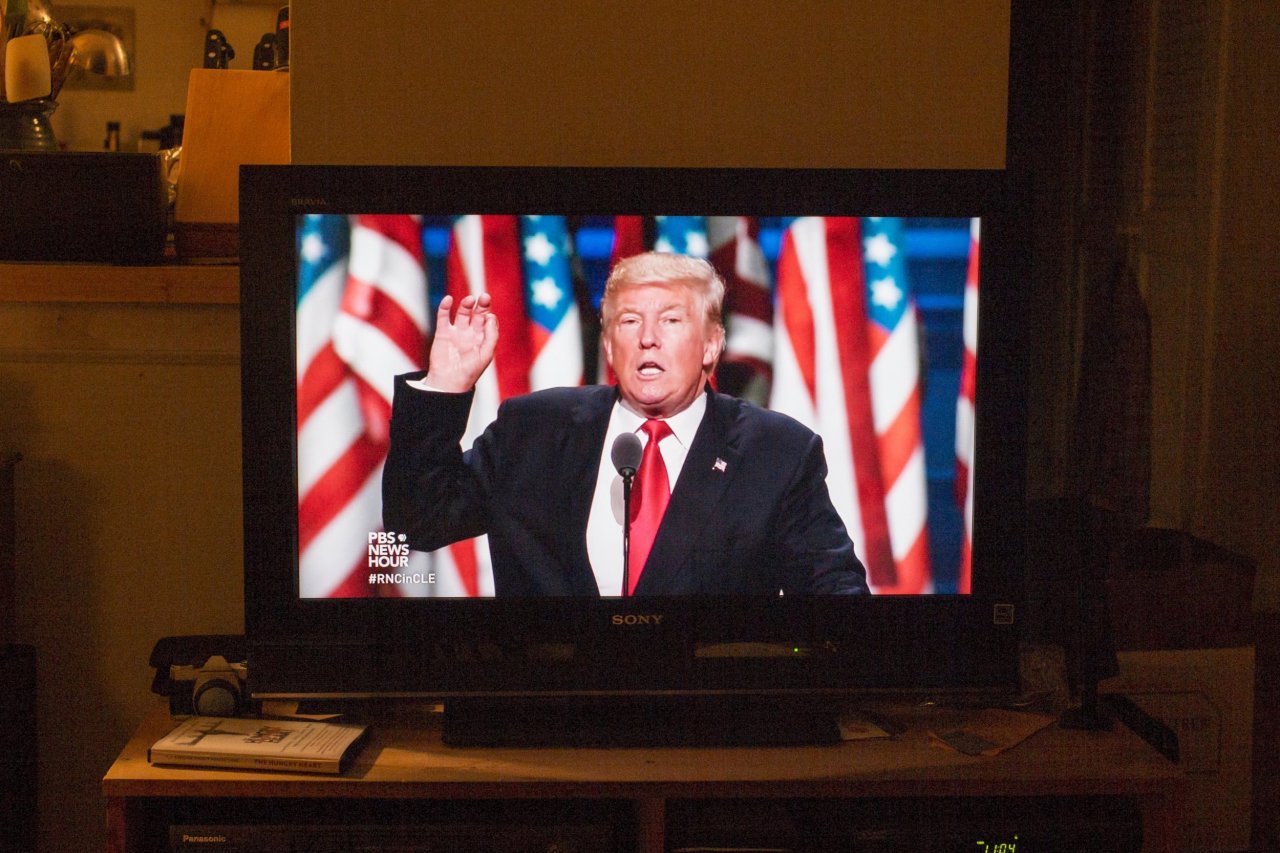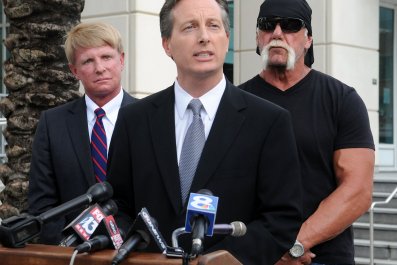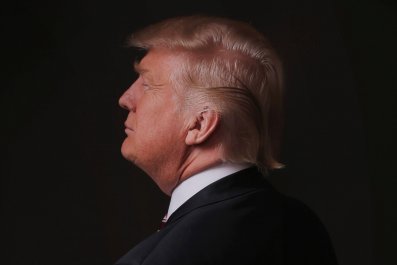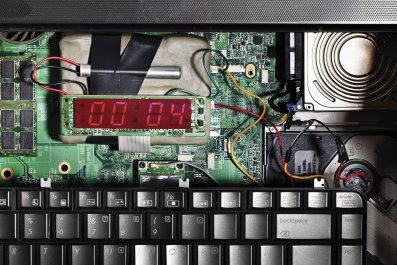Now we know why technologists are racing to develop virtual reality: so they can live there if Donald Trump gets elected.
But here's a better idea: The tech industry should take ownership of the role it played in creating Trumpism. If the industry did a better job helping society deal with all the disruption that technology throws at it, Trump might have fewer fans than the Tennessee Titans.
Tech leaders tend to like politics about as much as cats like baths. But all of a sudden they're joining the presidential melee, lining up against Trump, sometimes in creative ways. LinkedIn founder Reid Hoffman said he'll put up a $5 million donation if someone reveals Trump's tax returns. Rob Glaser, who long ago founded RealNetworks (iTunes about 10 years too early), set up a website to detail Trump's ties to Vladimir Putin. A letter signed by nearly 150 tech leaders proclaims, "We stand against Donald Trump's divisive candidacy and want a candidate who embraces the ideals that built America's technology industry." (Peter Thiel's recent $1.25 million check for Trump made most tech leaders throw up in their mouths a little.)
That may sound like civic pluck, but it also smells like guilt.
Technology has always been aimed at efficiency and automation, but for at least two decades its big prize has been disruption. Don't just make something work better—instead, blow up the old way and replace it with something completely different and digital. Software eats the world, as Marc Andreessen put it. But software also eats the livelihoods of people who can't adapt. You can see them on TV at Trump rallies.
I have almost never heard tech leaders seriously consider the whole societal picture as they bulldoze ahead with their disruptivity. There is nothing in Google's or Amazon's credo about creating as many jobs as it destroys, the way a lumber company has to plant as many trees as it cuts. Uber's vision is to operate fleets of self-driving cars and trucks, potentially upending millions of workers' lives. Haven't heard any hint of a program to help those people. Tech companies tend to do their thing and figure society will take care of itself—and if society can't deal with job losses this time, well, the techies say, let's install a basic income and pay people to not complain about not working.
Of course, tech innovation has benefited us all in endless ways. You can bet that no anti-immigration, anti-trade, anti-progress Trump voter wants to give up his or her iPhone or Facebook account, or go back to taking pictures with a Kodak Instamatic just to preserve thousands of film factory jobs in Rochester, New York. History shows that innovation and automation have always led to better standards of living. Yet progress can also hurt along the way, and some people never catch up. Tech folks generally think the fallout is not their problem, but now Trump is making it their problem.
Technology also bears responsibility for the tone and divisiveness of this election. Over the past 20 years, technology has disrupted—or more likely obliterated—the way we'd long talked to each other about national politics. Back when most everyone tuned in to or read mass-market media, those media felt a responsibility for fairness—both a civic and a business responsibility, since pissing off half your audience would be bad for business. So the broad population got exposed to all sides of a story, whether they liked it or not.
But technology disrupted media and splintered it into narrow factions. Niche outlets have more incentive to appeal only to their audiences—today, that's good business. So now everyone peels off into his or her own silos of information, exacerbating the nation's divides. Facebook makes it much worse by herding us into our individual echo chambers. Its algorithm is optimized for engagement and page views (i.e., making money), not for fairness or equal time or civility. The more Facebook's algorithm chooses what news to show us, the more we see news that fits our predisposed likes.

The result? For the first time in its surveys since 1992, the Pew Research Center found that majorities in both political parties "express not just unfavorable but very unfavorable views of the other party." In fact, 81 percent in a recent Pew survey said that supporters of Trump and Hillary Clinton don't just disagree over plans and policies, they disagree over "basic facts." Technology has led to such polluted discourse that, for the first time in history, provable facts have been downgraded to partisan beliefs.
Even if the tech industry helps defeat Trump, the underlying sentiments he stirred up aren't going to disappear. And if tech doesn't address such concerns, the whole situation is only going to get fouler as we become more digital and do more stuff online and surrender to even more software. Workers are staring into the headlights of artificial intelligence, wondering when they'll turn into roadkill. Another Pew survey found that one in five of those with a high school diploma or less believes they're in danger of being replaced by software. That's not just insecurity—that's fear.
There are signs tech is starting to get it. IBM, Microsoft, Google, Amazon and Facebook recently got together to form an organization called Partnership on AI, vowing to show some sense of duty. "We recognize we have to take the field forward in a thoughtful and positive and implicitly ethical way," said Mustafa Suleyman, the group's co-chair and co-founder of Google DeepMind. Hopefully, these companies will follow through.
Some in tech are saying Facebook and others need to be accountable for the dynamics they set in motion. "What algorithms aren't optimized for is doing the right thing or for displaying any amount of transparency," writes Hemant Taneja of General Catalyst Partners, a venture capital firm. (Full disclosure: I'm working on a book with Taneja.) "This has to change, and these companies themselves must take the lead in creating algorithmic accountability in their services."
In mid-October, President Barack Obama addressed this topic in his opening remarks at a White House Frontiers Conference. He told the tech and science audience that they need to get involved in the issues technology raises, suggesting it will be good for business in the long run. "I don't want this audience of people who are accustomed to things happening faster and smoother in their narrow fields to somehow get discouraged and say, 'I'm just not going to deal with government,'" Obama said. "Because, at the end of the day, if you're not willing to...just get in the arena and wrestle with this stuff, and argue with people who may not agree with you, and tolerate sometimes not perfect outcomes but better outcomes, then the space to continue scientific progress isn't going to be there."
In other words, if tech can't or won't tackle the problems it creates, it will wind up with an anti-tech Trump now, or some anti-tech Second Coming of Trump later. So the industry needs to step up.
It's either that or double down on VR.























